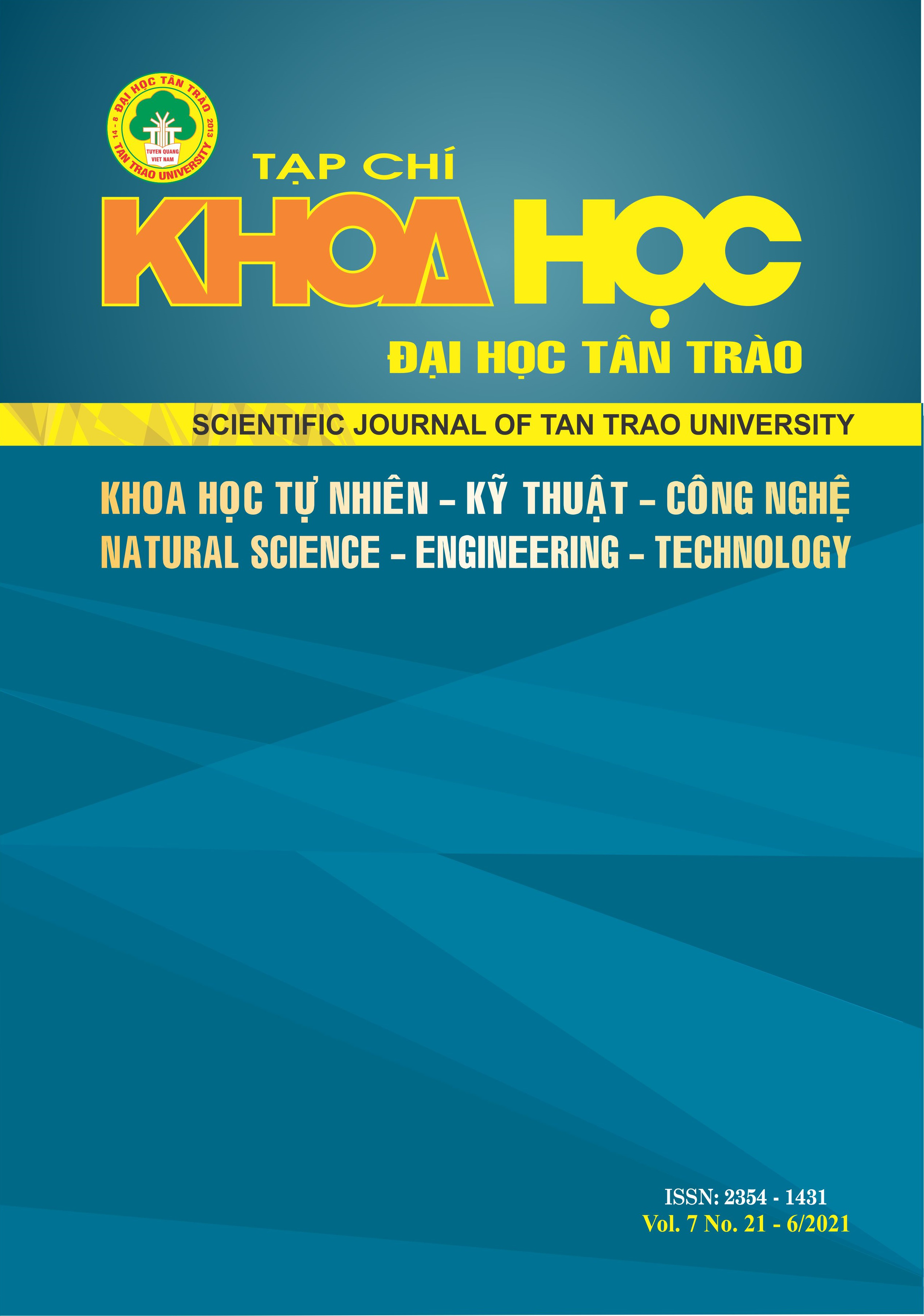DEVELOPING KNOWLEDGE CAPACITY FOR STUDENTS OF AGRICULTURE AND FORESTRY INDUSTRY THROUGH THE UNIVERSAL CHEMICAL MODULE
DOI:
https://doi.org/10.51453/2354-1431/2021/541Keywords:
Knowledge applying, student, General chemistry, exercise, capacity, practicalAbstract
The use of knowledge based-exercises on practice is one of the methods forming and developing the students’competence in solving practical situations With the characteristics of the General chemistry section which apply a lot to practical majorities of the university, we have built a system of practical exercises related to specialized knowledge from which students receive right after they finish their general knowledge section. It can be seen from the results, the students can apply the theoritical knowledge, which they have learned, to solve practical problems of their job. Therefore, forming and developing the capacity to apply knowledge to themselves.
Downloads
References
[1] Chemistry Lecture, (2020). Nong Lam University - Thai Nguyen University, Vietnam.
[2] Bang, N.D. (1996). General Chemistry Volume. Hanoi Education Publishing House, Vietnam.
[3] Giac, C.G. (2009). Design and use of experimental chemistry exercises in teaching and learning Chemistry. Education Publishing House, Vietnam.
[4] Hai, T.H., Ban, V.N., Hue, T.T. (2015). Theoretical basis of chemical processes. Pedagogical University Publishing House, Vietnam.
[5] Tau, N.V., Dam, D.V., Ha, H., Quy, N.T. (2010). "General chemistry - For students of Agriculture - Forestry - Fisheries - Volume 1". Education Publishing House, Vietnam.
Downloads
Published
How to Cite
Issue
Section
License

This work is licensed under a Creative Commons Attribution-ShareAlike 4.0 International License.
All articles published in SJTTU are licensed under a Creative Commons Attribution-ShareAlike 4.0 International (CC BY-SA) license. This means anyone is free to copy, transform, or redistribute articles for any lawful purpose in any medium, provided they give appropriate attribution to the original author(s) and SJTTU, link to the license, indicate if changes were made, and redistribute any derivative work under the same license.
Copyright on articles is retained by the respective author(s), without restrictions. A non-exclusive license is granted to SJTTU to publish the article and identify itself as its original publisher, along with the commercial right to include the article in a hardcopy issue for sale to libraries and individuals.
Although the conditions of the CC BY-SA license don't apply to authors (as the copyright holder of your article, you have no restrictions on your rights), by submitting to SJTTU, authors recognize the rights of readers, and must grant any third party the right to use their article to the extent provided by the license.


